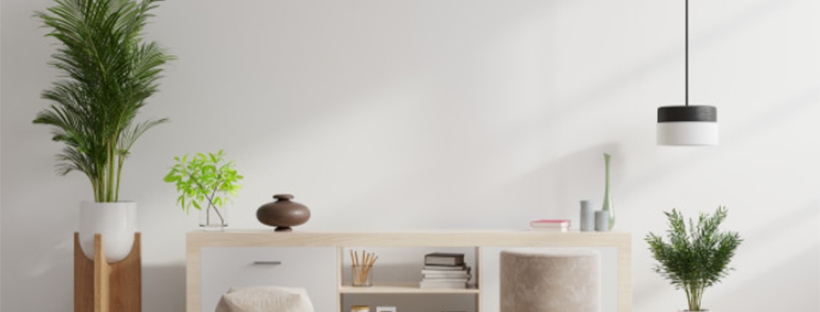Home Plants-The Indoor ferns and petals
 17547
17547

In cities, our lives severely lack the serenity and peaceful support of nature. Nature commonly suffer from an existential crisis in metropolitan cities. Now, if you are a nature soul, this distance from nature can make you feel lost too. You would not feel at home and at peace anywhere. Obviously, because of the work commitments, you can’t move your home and office into the laps of nature, but you can definitely bring nature and greenery to your home. How? It’s really simple, and the answer is home plants or indoor plants! While for some, home plants are just a means to add visual beauty, studies have shown that they possess certain psychological and physiological attributes as well. For a nature lover, these plants would help give a feeling of a big family while those who aren’t really into nature, filling interior spaces with plants would not only add to greenery but also help interact with the body and mind in a way that improves the quality of life. Zen mode on! Our cities, especially if you are in a metropolitan city, are now often referred to as a gas chamber. Other small towns are hardly any different. It’s time we transform our homes into oxygen cylinders. These home plants help reduce the toxins in the air harmful for humans and act as a natural air purifying agent. They also increase oxygen levels in the environment, making it easier to breathe, at least in homes. As a part of the photosynthetic cycle, plants release moisture into the air, which increases the humidity in the air keeping respiratory distress for humans at bay. Caring for a living thing gives us a purpose, and the rewards are blooming ferns and petals that grow. Studies have also proven that home plants help increase concentration power and productivity.
Taking care of home plants:
Now that you have known how much our leafy friends do for our well-being, it’s time we do something for them too. If you are new to gardening, these are some of the ways to grow and take care of these home plants: 1. Adequate watering and sunlight: Watering and sunlight are the basic requirements for growing any plant, but caution should be taken as the excess of anything is harmful so that the plant is not exposed to excess sunlight as this may cause the leaves to curl up and dry out eventually. Similarly, the plants should not be over-watered as it robs them from proper nutrition. 2. Avoid moving the plants: Allow your green living beings to endure this ordeal? Plants tend to adapt very slowly to the changes in the surroundings by changing their structure and leaf inclination. One should avoid moving them around as they are deceptive to the many changes in the surroundings. 3. Beware of the habitat suiting the plants: We like different climates. Similarly, some plants like it hot, one should know which environment is ideal for the plant as it differs from species-to-species, and care should be taken at the time of choosing as to which plant should be grown. 4. Adequate fertilizing: Although plants produce their own food to survive during the process of photosynthesis, they also need a more direct form of food to carry out their nutrition. Fertilizers or plant supplements can be added as granules that break down slowly or can be added as water-soluble fertilizer. 5. Hydroponics as a means to avoid pests: The breeding ground for any pest, the soil, is done away with as hydroponics make use of soilless methods of growing such as pots of water, sand, or even pebbles. Precaution is better than cure being used at it’s best. Home indoor plants help build up a ‘Personal Plant Sanctuary’ and are an inexpensive means to jazz up the most boring rooms!
Follow Us-
Instagram/ Facebook/ Youtube/ Pinterest
Also Read:
8 Ideas to use your Home space for Office Work in COVID times
Best Wicker Decor Ideas to give your Home a Natural and a Calm feel





Leave a Reply